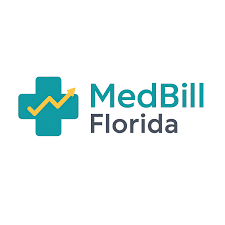What Are the Key Differences Between Medical Billing for Hospitals and Clinics?

When it comes to medical billing, many people assume the process is the same for every healthcare provider. But in reality, hospital billing and clinic billing operate under very different systems.
From the complexity of patient records to the structure of claims, each setting requires a specialized approach. Undhttps://www.medicalbillingservicesfl.us/erstanding these differences can help healthcare organizations improve accuracy, reduce denials, and streamline revenue cycles.
Let’s explore how hospital billing differs from clinic billing — and why expert partners like Medi Bill Florida make the process easier for both.
Understanding the Basics of Medical Billing
At its core, medical billing involves translating healthcare services into standardized claim codes and submitting them to insurance companies for payment.
However, the scale and workflow between hospitals and clinics are not the same. Hospitals often deal with multiple departments, specialists, and long-term care. Clinics, on the other hand, handle outpatient visits that are generally simpler but occur more frequently.
These differences influence everything from coding structure to billing software requirements and claim submission methods.
Hospital Billing: Complex, Multi-Layered, and Time-Intensive
Hospital billing — often referred to as institutional billing — covers services provided during inpatient or outpatient hospital stays.
Hospitals submit UB-04 claim forms, which include facility fees, physician charges, medications, lab tests, surgeries, and even bed occupancy details.
Because of this complexity, hospital billing teams must coordinate across multiple departments and ensure that every charge is accurately captured before submission. A single coding error can delay or reduce reimbursement significantly.
Another layer of complexity comes from insurance coverage verification, pre-authorization, and bundled payments, which are more common in hospital environments.
Clinic Billing: Streamlined but Frequent
Clinic billing — known as professional billing — focuses on outpatient care, such as routine checkups, diagnostics, and minor treatments.
Here, providers typically use CMS-1500 claim forms, which detail physician and service-specific charges.
Because clinics manage more frequent but smaller claims, speed and efficiency are key. The goal is to keep the cash flow consistent and reduce administrative workload for providers.
Unlike hospitals, clinics often depend on smaller billing teams or outsourced billing partners to manage claim submissions and follow-ups efficiently.
Major Differences Between Hospital and Clinic Billing
While both systems aim to ensure timely and accurate payments, they differ in several important ways.
Here’s a clear breakdown of the key differences between hospital and clinic billing:
-
Type of Services Billed:
Hospitals bill for both inpatient and outpatient services, while clinics primarily handle outpatient care. -
Forms Used:
Hospitals use UB-04 forms; clinics use CMS-1500 forms. -
Complexity of Billing Codes:
Hospitals rely on multiple coding systems, including CPT, HCPCS, and revenue codes. Clinics mainly use CPT codes. -
Volume vs. Size of Claims:
Hospitals deal with fewer but larger claims; clinics handle many smaller ones. -
Staff Requirements:
Hospitals need dedicated billing departments; clinics can often outsource billing cost-effectively. -
Technology Needs:
Hospitals use large-scale billing software integrated with EHR systems. Clinics can function with specialized billing tools or external partners.
These differences affect how efficiently each organization can process payments — and how easily they can adapt to regulatory changes.
Challenges Faced by Hospitals in Medical Billing
Hospitals face unique billing challenges due to their size and complexity.
Managing large datasets, coordinating multiple physician charges, and ensuring compliance with both Medicare and private insurance can be overwhelming.
Common hospital billing issues include:
-
Duplicate or missing charges
-
Coding errors across multiple departments
-
Claim rejections due to incomplete data
-
Delays in insurance verification
Without a robust billing system, hospitals risk significant revenue loss. That’s why many large healthcare networks invest in integrated billing systems and specialized staff to maintain accuracy.
Challenges Faced by Clinics in Medical Billing
Clinics have different pain points. Because their operations are smaller and faster-paced, even minor billing delays can disrupt cash flow.
They often struggle with:
-
High claim volume with limited staff
-
Delays in patient payments
-
Frequent insurance policy updates
-
Limited understanding of complex payer requirements
For this reason, many clinics in the U.S. turn to medical billing services in Florida and other states to outsource their revenue cycle management.
Partnering with experts allows them to focus on what matters most — patient care — while professionals handle claim submissions, follow-ups, and denials.
Why Outsourcing Medical Billing Is a Smart Move
Whether you’re managing a hospital or running a private clinic, outsourcing medical billing can reduce errors, save time, and increase revenue.
Here’s how professional billing partners make a difference:
-
They stay updated on the latest coding regulations and payer policies.
-
They ensure compliance with HIPAA and Medicare guidelines.
-
They reduce claim denials through accurate, timely submissions.
-
They provide detailed reporting for better financial visibility.
In states like Florida, outsourcing has become a trend among healthcare providers seeking faster reimbursements and stress-free billing.
Why Choose Medi Bill Florida for Your Medical Billing Needs
If you’re based in Florida and searching for reliable medical billing services Florida, look no further than Medi Bill Florida.
They specialize in both hospital and clinic billing, understanding the unique needs of each.
Here’s what makes Medi Bill Florida stand out:
-
Local Expertise: In-depth knowledge of Florida’s healthcare payer environment.
-
Tailored Solutions: Custom billing strategies for both hospitals and clinics.
-
Error-Free Claims: Industry-best accuracy rates for faster reimbursements.
-
Transparent Reports: Real-time access to billing data and claim statuses.
-
Compliance First: HIPAA and CMS-compliant processes to ensure data safety.
With their experience in medical billing services in Florida, they help healthcare providers optimize their revenue cycle while reducing administrative stress.
Whether you run a busy hospital or a growing clinic, Medi Bill Florida offers cost-effective solutions designed to fit your needs perfectly.
Technology’s Role in Improving Billing Accuracy
The future of billing lies in automation and AI. Hospitals and clinics that embrace cloud-based billing systems, automated coding, and real-time claim tracking see faster payments and fewer denials.
Medi Bill Florida leverages advanced software and secure platforms to ensure every claim is submitted correctly the first time — saving you time and improving profitability.
Final Thoughts
Hospital and clinic billing may share the same goal — getting paid accurately — but their paths are very different.
Hospitals require comprehensive systems and cross-department coordination, while clinics need fast, efficient processes to handle daily claim volumes.
Choosing the right billing partner can make all the difference. If your healthcare practice is based in Florida, Medi Bill Florida is your go-to choice for reliable, compliant, and affordable billing management.
From hospital billing to clinic billing, they make revenue recovery simple, transparent, and stress-free — so you can focus on delivering quality care, not chasing payments.






